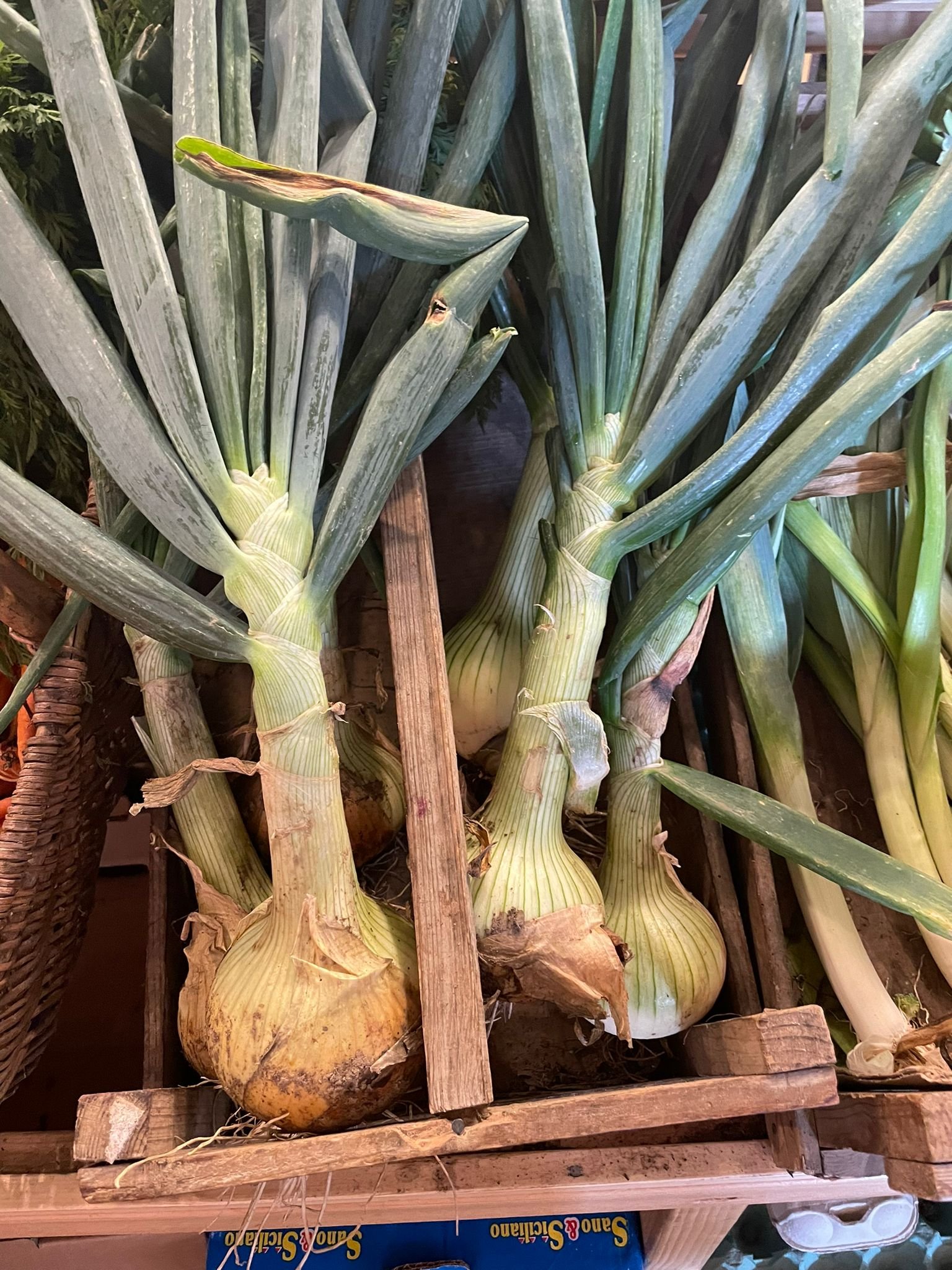white onion
Scientific Name: The scientific name of the white onion is Allium cepa.
Flavour: White onions have a crisp texture and a strong, pungent flavour. They are known for their sharp and slightly sweet taste, which can add depth and complexity to a variety of dishes.
Growing Season: White onions are typically grown during the spring and summer seasons. They thrive in temperate climates and require a frost-free period of approximately 100 to 130 days to reach maturity.
Native Region: White onions are believed to have originated in Western Asia, specifically in the region encompassing Iran, Pakistan, and Afghanistan. From there, they spread to other parts of the world through trade and exploration.
Traditional Recipe: White onions are a versatile ingredient used in numerous culinary traditions around the world. One popular traditional recipe that incorporates white onions is French Onion Soup. In this classic dish, sliced white onions are caramelized and simmered in a flavorful beef or vegetable broth, then topped with toasted bread and melted cheese.
Health Properties: White onions offer several health benefits. They are a good source of vitamin C, which supports immune function and collagen production. They also contain antioxidants that help protect the body against free radicals. Additionally, white onions contain sulfur compounds, which have been associated with potential anti-inflammatory and anticancer properties.
Growing Technique: White onions can be grown from seeds, sets (small bulbs), or transplants. They prefer well-drained soil and full sun exposure. The growing technique involves preparing the soil by adding compost or organic matter, planting the sets or seeds at the appropriate depth, and providing regular watering. White onions can be harvested once the tops have fallen over and dried, typically after the bulbs have reached a desirable size. Proper curing and storage are crucial to ensure their long-term preservation.
